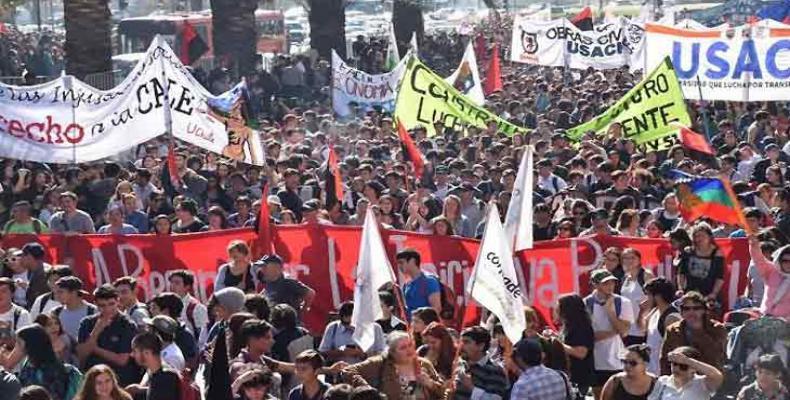Santiago de Chile, July 23 (RHC)-- Thousands of members of Chile’s College of Teachers decided Tuesday to end their 50-day strike, the second-longest in the history of the country’s educational sector.
The president of the college, Mario Aguilar, made the announcement after the teachers voted by 67 percent to put an to the strike while 32 percent wanted to continue. The union leader said he was proud of the long-term mobilization that “taught the arrogant government a lesson.”
The government had refused to seek a way out to the crisis through talks and only came to the dialogue table when the strike had been going on for four weeks.
Although the teachers decided to go back to their work activities, the president of the College pointed out the need to continue the fight as there are still issues that have not been resolved yet, he assured that returning to work does not mean the teachers are renouncing their demands.
Among the important demands that the government has not accepted is maintaining history, arts and physical education as mandatory during the last two years of high school for students. Teachers are still demanding an increase in salary and more classroom resources amidst government austerity.
Aguilar said that in order to find a solution to these pending matters, the college of teachers could go to court. He also indicated the teachers will ensure that the government follow up more of the union's 11 main demands.
The teachers will return to work guided by an educational plan to make up for the lessons missed since the strike began June 3 for more than a half a million students. Striking teachers had the support of some 70 percent of the population, while Education Minister Marcela Cubillos’ handling of the crisis has been widely criticized, her popular support shrank from 32 to 23 percent, according to the polls.
The government bowed to pressure earlier this month and accepted to dialogue with the teachers after trying to pressurize them to give up their strike. More than 75,000 were mobilized, protesting for structural issues within the country's public system.


